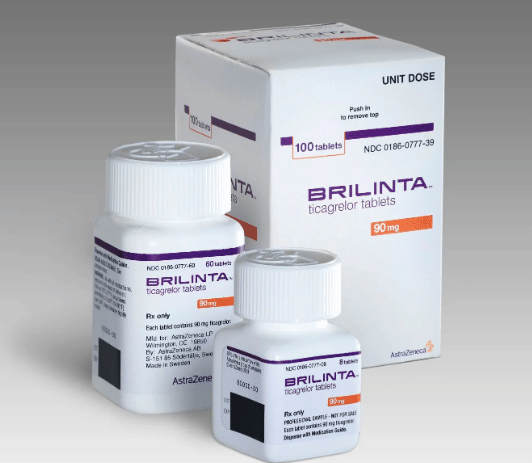To address this question, Brilinta is a commonly prescribed anticoagulant designed to prevent heart attacks or strokes in patients at high risk. Despite its benefits, it can have serious side effects, such as severe bleeding. For individuals who have previously experienced a heart attack, Brilinta helps reduce the risk of subsequent heart attacks and associated mortality.
Is Brilinta a blood thinner?
Brilinta is a well-known antiplatelet medication. Platelets are blood cells that assist in forming clots to stop bleeding. When these clots form within blood vessels, they can block blood flow, which may result in a heart attack or stroke. Brilinta lowers this risk by preventing platelets from aggregating into dangerous blood clots.
Common side effects of Brilinta
Some typical side effects of Brilinta include:
- Bruising
- Increased bleeding
- Nosebleeds
- Headache
- Dizziness
- Cough
- Nausea
- Diarrhea
- Irregular heartbeat
- High blood pressure
- Back pain
- Low blood pressure
- Fatigue
- Chest pain
Serious side effects of Brilinta
Brilinta can also induce serious adverse effects, such as:
- Allergic hypersensitivity reactions
- Severe bleeding
- Bradyarrhythmia (slow heart rate)
- Atrioventricular block (impaired electrical conduction between the heart’s chambers)
- Thrombotic thrombocytopenic purpura (a potentially fatal condition involving blood clots in small vessels throughout the body)
- Central sleep apnea (neurological pauses in breathing during sleep)
Long-term effects of Brilinta
The long-term effects of Brilinta require further research. Though individuals taking Brilinta with aspirin exhibited higher bleeding rates, the risks of fatal bleeding, cerebral hemorrhage, or overall mortality were not significantly different compared to those taking aspirin alone.
How long do the side effects of Brilinta last?
Common side effects like dyspnea and diarrhea should subside after discontinuing Brilinta. Elevated serum creatinine levels may also decrease. However, bleeding risks could continue even after stopping the medication.
Serious side effects, such as allergic reactions, may persist post-discontinuation and demand immediate medical attention.
Brilinta drug interactions
Brilinta interacts with various medications. It is crucial to discuss all prescriptions, over-the-counter drugs, and dietary supplements with a healthcare provider.
Medications that can interact with Brilinta include:
- Anticoagulants like warfarin
- Antiplatelet agents such as Plavix
- Drugs or foods affecting p-glycoprotein or CYP3A4 enzymes, including grapefruit, ritonavir, atazanavir, digoxin, carbamazepine, phenytoin, phenobarbital, simvastatin, lovastatin, ketoconazole, itraconazole, and rifampin
- Drugs causing bradycardia or AV block
- Drugs that delay gastric (stomach) emptying
